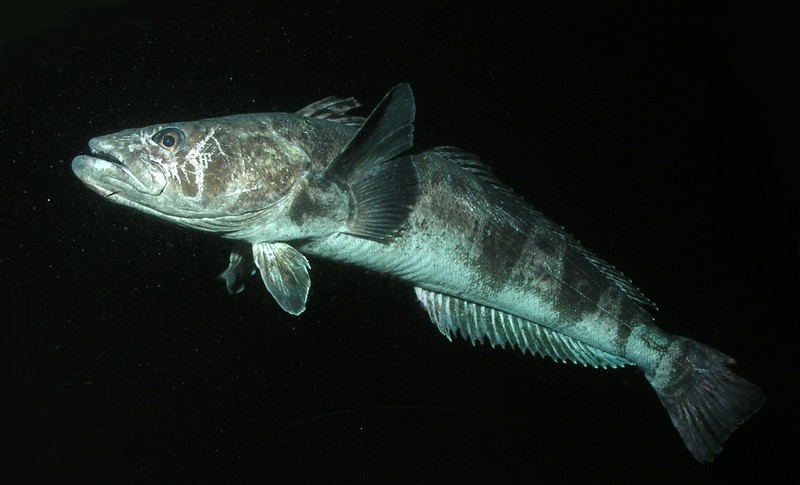Difference between revisions of "Template:Westarctica.wiki:Today's featured article"
Jump to navigation
Jump to search
Westarctica (talk | contribs) |
Westarctica (talk | contribs) |
||
| Line 1: | Line 1: | ||
[[File: | [[File:Antarctic toothfish-water.jpg|300px|left]] | ||
The '''[[Antarctic toothfish]]''' is a species of cod icefish native to the [[Southern Ocean]]. It is often mistakenly referred to as an [[Antarctica|Antarctic]] cod, consistent with the misnaming of other notothenioid Antarctic fish as rock cods. However, notothenioid fishes are unrelated to cods, which are in another taxonomic order, the Gadiformes. The generic name Dissostichus is from the Greek ''dissos'' (twofold) and ''stichu''s (line) and refers to the presence of two long lateral lines, which are very important to the species’ ecology. The common name "toothfish" refers to the presence of biserial dentition in the upper jaw, thought to give it a shark-like appearance. | |||
The habitat of the Antarctic toothfish is in subzero degree water below latitude 60°S. | |||
'''([[Antarctic toothfish|Full Article...]])''' | |||
'''([[ | |||
Revision as of 21:38, 10 October 2020
The Antarctic toothfish is a species of cod icefish native to the Southern Ocean. It is often mistakenly referred to as an Antarctic cod, consistent with the misnaming of other notothenioid Antarctic fish as rock cods. However, notothenioid fishes are unrelated to cods, which are in another taxonomic order, the Gadiformes. The generic name Dissostichus is from the Greek dissos (twofold) and stichus (line) and refers to the presence of two long lateral lines, which are very important to the species’ ecology. The common name "toothfish" refers to the presence of biserial dentition in the upper jaw, thought to give it a shark-like appearance.
The habitat of the Antarctic toothfish is in subzero degree water below latitude 60°S.
